Current Projects
Country: Zambia
Showing 1 - 25 of 26
26 results found
To fast-track readiness and early actions to implement the post-2020 Global Biodiversity Framework by providing financial and technical support to GEF-eligible Parties to the Convention on Biological Diversity (CBD) in their work to review and align their national targets, NBSAPs, policy frameworks, monitoring frameworks and finance with the Global Biodiversity Framework.
Facilitate the implementation of the Stockholm Convention in participating countries through the development, review and update of the NIPs and submission to the Conference of the Parties (COP) of the Convention
To enhance national-level institutional and technical capacities for the 2021-2022 UNCCD reporting process in the context of the UNCCD Strategic Framework 2018-2030 and SDG15.3
To support Eight (8) developing countries prepare and submit Biennial Transparency Reports (BTRs) and National Communications (NCs) that comply with the United Nations Framework Convention on Climate Change (UNFCCC) and Paris Agreement reporting requirements; and respond to their national development goals
To strengthen community-based sustainable management of forest landscapes, and provide improved livelihood opportunities for targeted forest-dependent rural communities in Zambia's North West Province
To assist GEF-Eligible Parties to the Cartagena Protocol on Biosafety to prepare and submit their Fourth National Reports on measures that each Party has taken to implement the Cartagena Protocol on Biosafety
To strengthen the capacity of government and rural communities living around wetlands and forests to adapt to climate change using EbA.
To enable country Parties to collect necessary biophysical, socioeconomic data, establish sound reporting and monitoring systems at national level and report against the UNCCD Strategy
To provide financial and technical support to GEF-eligible Parties to the Convention on Biological Diversity (CBD) in their work to develop high quality, data driven sixth national reports (6NR) that will improve national decision-making processes for the implementation of NBSAPs; that report on progress towards achieving the Aichi Biodiversity Targets (ABTs) and inform both the fifth Global Biodiversity Outlook (GBO5) and the Global Biodiversity Strategy of 2021 – 2030.
To Assist GEF-Eligible Parties to the Nagoya Protocol on Access and Benefit Sharing to prepare and make timely submission of their Interim National Reports on measures that each party has taken to implement the Protocol in line with Article 29
Strengthening policies, laws, and criminal justice capacities to address poaching and illegal wildlife trade (IWT) in five target countries in Africa
To contribute to improved health and environment through strengthening national and regional institutions, and implementing priority chemicals and waste related interventions
Development of National Action Plans to reduce the use of mercury and mercury compounds in, and the emissions and releases to the environment of mercury from, artisanal and small-scale gold mining and processing is facilitated by the use of scientific and technical knowledge and tools by national stakeholders in participating countries.
To reduce environmental and human health risks from PCB releases through the demonstration of a regional approach to the introduction of cost-effective and socially acceptable environmentally sound management (ESM) of PCB oils, equipment and wastes held by electrical utilities and other PCB owners in participating countries.
To strengthen national capabilities for implementation and scaling up of evidence-based, innovative, diversified and environmentally sound disease vector control interventions (with special emphasis on malaria) with multi-stakeholder participation within context of IVM
To Assist GEF-Eligible Parties to the Cartagena Protocol on Biosafety to prepare and make timely submission of their Third National Reports on measures that each party has taken to implement the Protocol in line with Article 33
To support thirty nine (39) Least Developed Countries (LDCs) and Small Islands Developing States (SIDS) prepare and submit good quality initial biennial update reports to the UNFCCC that comply with the convention's reporting obligation
Nine countries prepare and submit intended nationally determined contributions (INDCs) to the 2015 United Nations Framework Convention on Climate Change (UNFCCC) Agreement and have institutional arrangements in place that support the INDC process
To strengthen the capacity for implementation of the updated POPs Global Monitoring Plan (GMP) and to create the conditions for sustainable monitoring of POPs in the African Region
To support 16 countries parties Countries in meeting its obligation to the UNCCD Convention through Alignment of NAP with the 10 – Year Strategy and reporting and review process for the UNCCD
The project will provide financial and technical support to 22 LDCs and SIDS to prepare and submit good quality National Communication (NC) reports to the United Nations Framework Convention on Climate Change (UNFCCC), which comply with the Convention repo
Project Objective: With the overarching goal of integrating CBD Obligations into National Planning Processes through Enabling Activities, the main objective of this project is to enable GEF eligible LDCs and SIDs to revise the National Biodiversity Strategies and Action Plans (NBSAPs) and to develop the Fifth National Report to the CBD
To Assist GEF-Eligible Parties to the Cartagena Protocol on Biosafety in Africa to prepare and make timely submission of their Second National Reports on measures that each party has taken to implement the Protocol in line with Article 33
To reduce the use of mercury in the ASGM sector in Zambia through a holistic, multisectoral integrated formalization approach and increased access to finance leading to the adoption of sustainable mercury-free technologies and access to traceable gold supply chains.
To enhance transboundary cooperation and SAP implementation through sustainable fisheries co-management, biodiversity conservation and restoration of degraded landscapes in selected key biodiversity of Lake Tanganyika.
Showing 1 - 25 of 26




